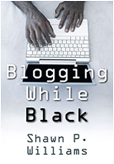American Journal Review gives an academic assesment of race and media – Dallas South, AfroSpear bloggers featured
The America Jouralism Review recently published an article by Raquel Christie that takes an extensive look at how the mainstream media covered the Jena 6 story. Raquel spent a lot of time pulling this story together and examines it from a number of different angles.
There are a few AfroSpear blogs, including Dallas South, that were featured in this report. Click here to see AJR's entire story titled Double Whammy.
- All this awful bait, but the national media didn't bite. The story, instead, was the property of black bloggers and radio hosts, two local papers and activists. Only after they had interpreted it, only after they had dissected it, only after they had decided the right and the wrong of it – and dedicated a movement, the Afrospear, to it – only after big names like Al Sharpton and Jesse Jackson stepped into the fray last summer did the news media give it to us.
-
Soon, the blogs were afire with cries for justice in Jena – and for media respect.
 "I make a final plea to the American media," wrote black blogger Shawn Williams on the day of Blogging for Justice, created by dozens of black bloggers who latched on to the Jena movement. "I'd ask that you raise your right hand and admit under oath that you just don't give a damn about black people. Your non-coverage of missing black women and children, your demonization of hip hop culture, your initial labeling of Katrina survivors as 'refugees' and your daily lynching of black athletes called sports talk radio is evidence of this fact. The Jena Six deserve justice." ( dallassouthblog.com/2007/08/30/jena-six-deserve-justice/)
"I make a final plea to the American media," wrote black blogger Shawn Williams on the day of Blogging for Justice, created by dozens of black bloggers who latched on to the Jena movement. "I'd ask that you raise your right hand and admit under oath that you just don't give a damn about black people. Your non-coverage of missing black women and children, your demonization of hip hop culture, your initial labeling of Katrina survivors as 'refugees' and your daily lynching of black athletes called sports talk radio is evidence of this fact. The Jena Six deserve justice." ( dallassouthblog.com/2007/08/30/jena-six-deserve-justice/)
(Did I write that? Yeah I guess I did)
 Wrote D. Yobachi Boswell on The Black Perspective: "The Afrosphere Jena 6 Coalition 'ask that the mainstream traditional media step forward and discharge their duty to provide coverage of this vitally important event to their viewers and readers and act as "the fourth institution" of governmental "checks and balance" that constitutional framers intended the press to be.'"
Wrote D. Yobachi Boswell on The Black Perspective: "The Afrosphere Jena 6 Coalition 'ask that the mainstream traditional media step forward and discharge their duty to provide coverage of this vitally important event to their viewers and readers and act as "the fourth institution" of governmental "checks and balance" that constitutional framers intended the press to be.'"
 Says Wayne Bennett, who wrote about the lack of national media coverage on his blog The Field Negro: "I don't think it was a sexy story. Stuff like that happens all the time, especially in Southern towns. That's not something the mainstream media would chase… They got on the story because Jesse Jackson and Al Sharpton got involved, then the big march, then it became sexier." ( field-negro.blogspot.com/)
Says Wayne Bennett, who wrote about the lack of national media coverage on his blog The Field Negro: "I don't think it was a sexy story. Stuff like that happens all the time, especially in Southern towns. That's not something the mainstream media would chase… They got on the story because Jesse Jackson and Al Sharpton got involved, then the big march, then it became sexier." ( field-negro.blogspot.com/)
- "I think it goes back to the difference of how the general media feels about an issue and how African Americans might feel," says Williams, author of Dallas South Blog. "It's because the media is made up of non-African Americans in general, and because of that they cover the stories from their personal point of view and that point of view is not shared by everyone. That's why I've really enjoyed what's happened lately with the blooming of bloggers. People can use their own spin to report what happens and how they feel about it."
-
At a "Covering Immigration and Race" discussion at the Poynter Institute, dean of faculty Keith Woods wanted to focus on Jena. So he spoke to the Town Talk's Carty and Williams from Dallas South Blog. What he found was a serious disconnect – two very different perceptions of the Jena story.
"The most profound realization coming out of those two conversations was how utterly differently two people could see the same story," Woods says. "To essentially paint it as the participants did, in the case of Paul [Carty], a story about overblown and incorrect media coverage, as much as it was about Jena, and to Shawn [Williams], it was a story about injustice."
Which is it about? The media should tell us, he says.
-
(Woods) "But here is the thing: If we are a nation of paranoid people, we need to know that. And so if it is pure paranoia that's driving the busloads of people that drive down to Jena, some of us need to report that, and if we believe it's paranoia, our belief needs to be taken to the journalistic test of reporting, and not simply dismissed, while we go off and cover O.J. And if it's not paranoia, who but journalists to help us understand it and see the injustice? Either argument deserves national attention before [the first story appeared] May 20."








